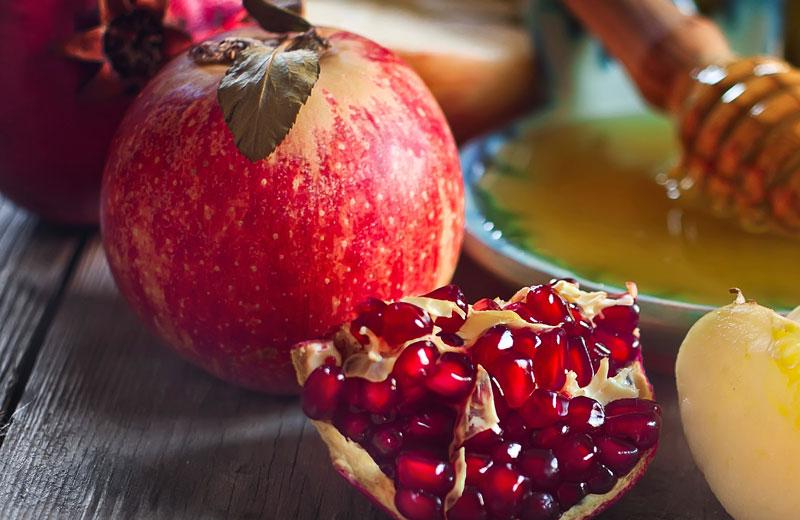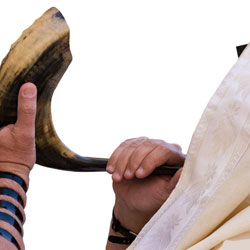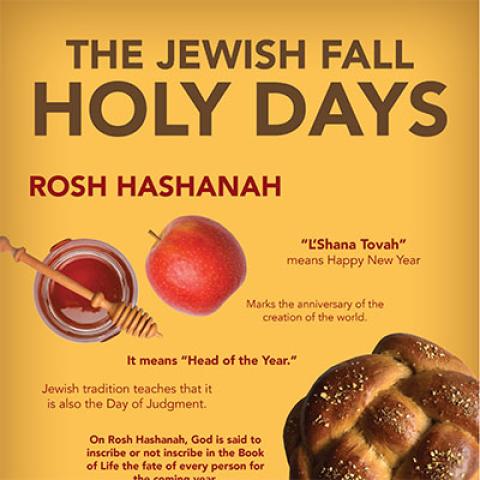
Rosh Hashanah means “head of the year” and is considered the Jewish civil New Year. Through the course of Israel’s history, the belief that this was the exact day God created the world led rabbis to associate the Feast of Trumpets with Rosh Hashanah. Today, Rosh Hashanah and the Feast of Trumpets are celebrated as the Jewish New Year. Rosh Hashanah is a time to reflect on the previous year as well as the one ahead. Many practitioners of Judaism spend the month preceding Rosh Hashanah, the month of Elul, as a time of repentance in preparation for the High Holy Days of Rosh Hashanah and Yom Kippur (the Day of Atonement). On Rosh Hashanah, one hundred shofar blasts call the Jewish people to spiritual awakening. Apples dipped in honey are a traditional treat symbolizing the hopes for a sweet and good New Year.
A trumpet (or shofar) was blown for two important reasons in Israel. One was to announce an assembly of the people. The second was to sound an alarm and call the troops together to combat an enemy attack.
The trumpet blown on this holy day represents the trumpet blast that will signify the end of the age. This feast is surrounded by a forty-day season of repentance known as Elul, during which the trumpet is blown each day to remind the people to repent.

The Prophetic Nature of the Fall Feasts
The Fall Feasts are almost upon us! By that I mean Rosh Hashanah, Yom Kippur and Sukkot. Each of these feasts has a universally....
Get the Fall Feasts Infographic
Discover the meaning and wonder of Rosh Hashanah, Yom Kippur, and Sukkot with this specially designed infographic.




